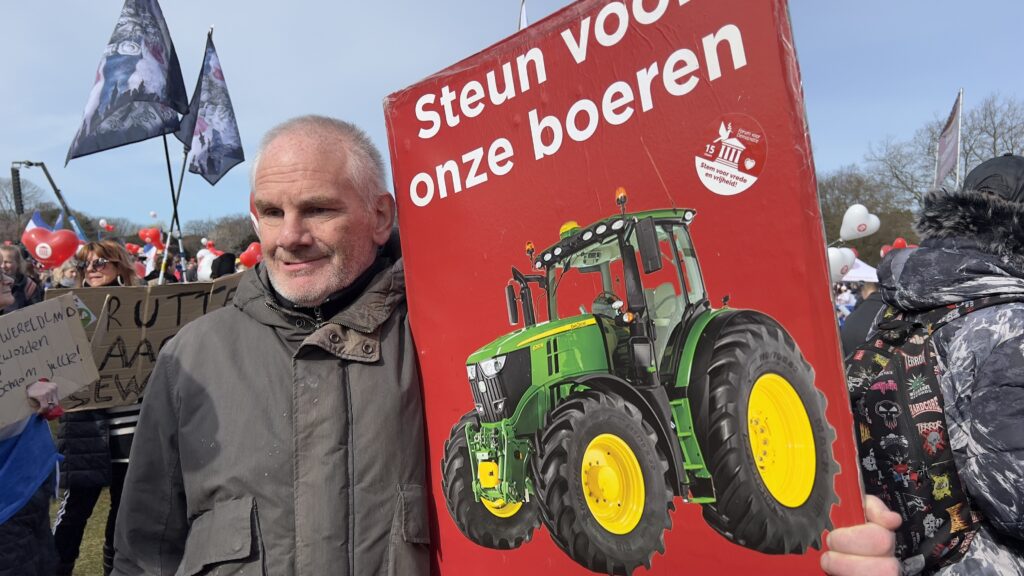Dutch farmers’ party secures landslide victory The BBB's huge election win is a direct challenge to Mark Rutte's coalition
Dutch farmers’ party secures landslide victory
The BBB's huge election win is a direct challenge to Mark Rutte's coalition

With the highest turnout in 30 years, Dutch voters gave an extraordinary signal to their four-party Government on Wednesday: the Farmer Citizen Movement (BoerBurgerBeweging, or BBB) is set to come first in regional elections, which decide the make-up of the Dutch Senate.
In a long voting day, with locations from repurposed drive-through testing centres to ancient churches, an estimated 61% of Dutch people turned out. The result was astonishing, even though the party has been creeping up the polls, feeding on anti-establishment feeling after unpopular Covid lockdowns.
Some analysts saw the election as a fight between two ‘moods’ in the Netherlands: a mood of (Right-wing) discontent, echoed also across other countries, versus the traditional consensus-driven Dutch mood. With 18 parties in parliament, politicians have typically found a way to muddle along, but this election was different thanks to the thorny issue of nitrogen compound pollution, which is tying the country in knots before a bill has even passed through parliament.
EU rules, Dutch laws, and court verdicts mean the country must reduce emissions of ammonia, nitrogen oxides and nitrous oxide from farming, transport and building machines. The question is who takes the hit — and whether 30% of productive farms should be shut, forcibly if necessary. The Netherlands, which feeds the world with its intensive farming and livestock-heavy agriculture, is at the sharp end of the international climate debate.
According to initial results, the BBB, headed by sole MP Caroline van der Plas, will be the largest party in the Senate — polling at more than 30% in some regions. Meanwhile, support for the Government has been slashed. The result is a direct challenge to Dutch PM Mark Rutte, who has been embroiled in a number of scandals, such as gas mining in Groningen at the expense of citizen safety, punishing innocent (often dual-national) citizens for childcare benefit fraud and ongoing Dutch farmer protests about nitrogen emissions. Small wonder, then, that 46% of voters said they were specifically voting against the current national administration.
The strength of green feeling here, both for and against, is a bellwether for the struggle to come in other countries and farming economies. But BBB should not be dismissed as ‘anti-green’; rather farmers are more of a lime green versus the dark green of the eco activists, both of whom claim they want to protect the land.
The reality of climate change mitigation or adaptation is playing out in the Netherlands right now, where these new provincial assemblies will need to come up with detailed plans to reduce nitrogen pollution by July. Meanwhile, there is a national housing crisis and this is one of the top personal issues for people in the Netherlands. Nitrogen rules are getting in the way. Still, the success of the BBB serves as a warning shot to Mark Rutte and his government.“This is a landslide we haven’t seen for years,” said CDA leader Wopke Hoekstra, a Government party whose traditional farmer support has evaporated. “It is an extraordinarily bitter pill.”
Comments
Post a Comment